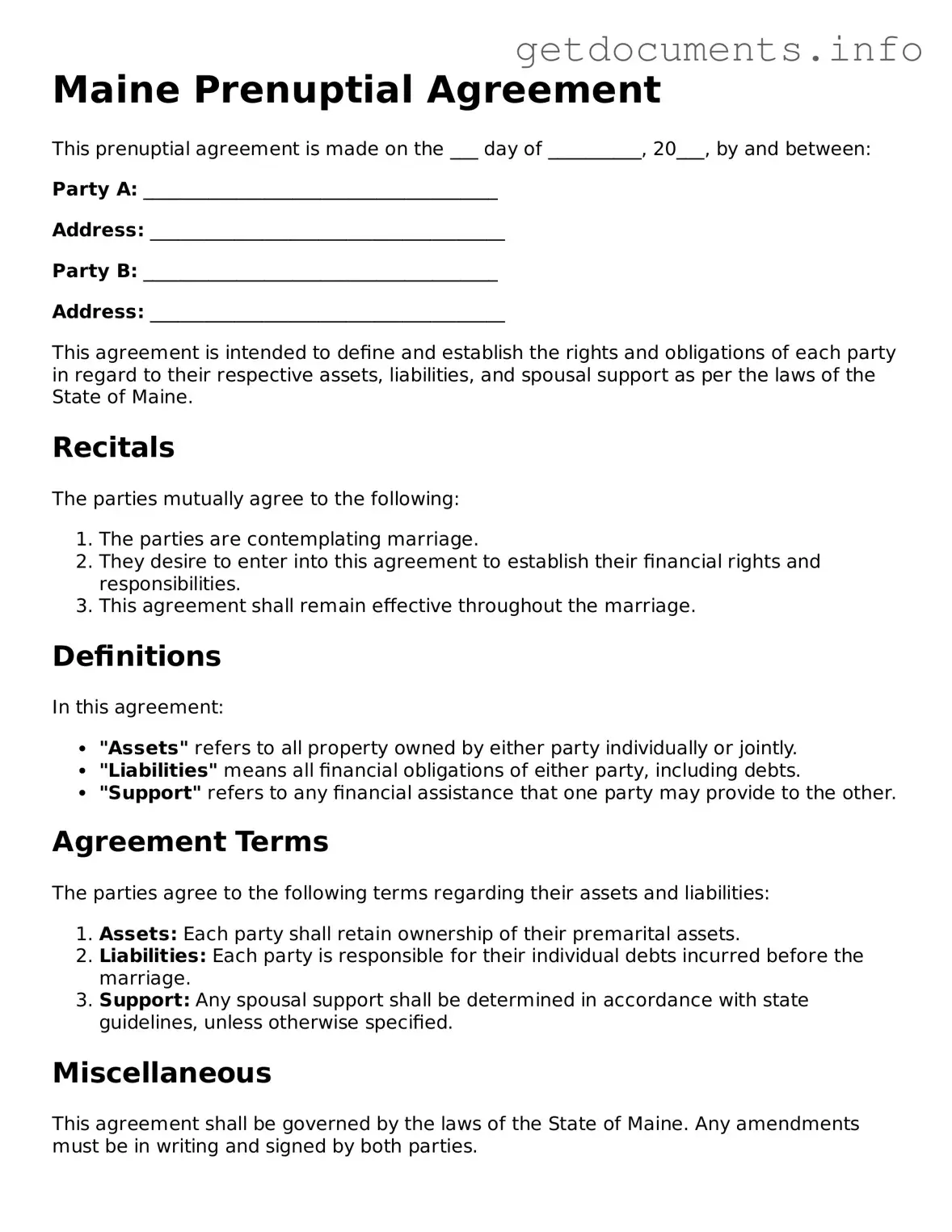Free Prenuptial Agreement Template for Maine
A Prenuptial Agreement in Maine is a legal document that outlines the financial and property rights of each spouse in the event of a divorce or separation. This agreement helps couples clarify their financial expectations and protect their individual assets before entering into marriage. If you're considering a prenuptial agreement, take the first step by filling out the form below.
Access Prenuptial Agreement Editor

Free Prenuptial Agreement Template for Maine
Access Prenuptial Agreement Editor
Got places to be? Complete the form fast
Fill out Prenuptial Agreement online and avoid printing or scanning.
Access Prenuptial Agreement Editor
or
⇩ PDF File
